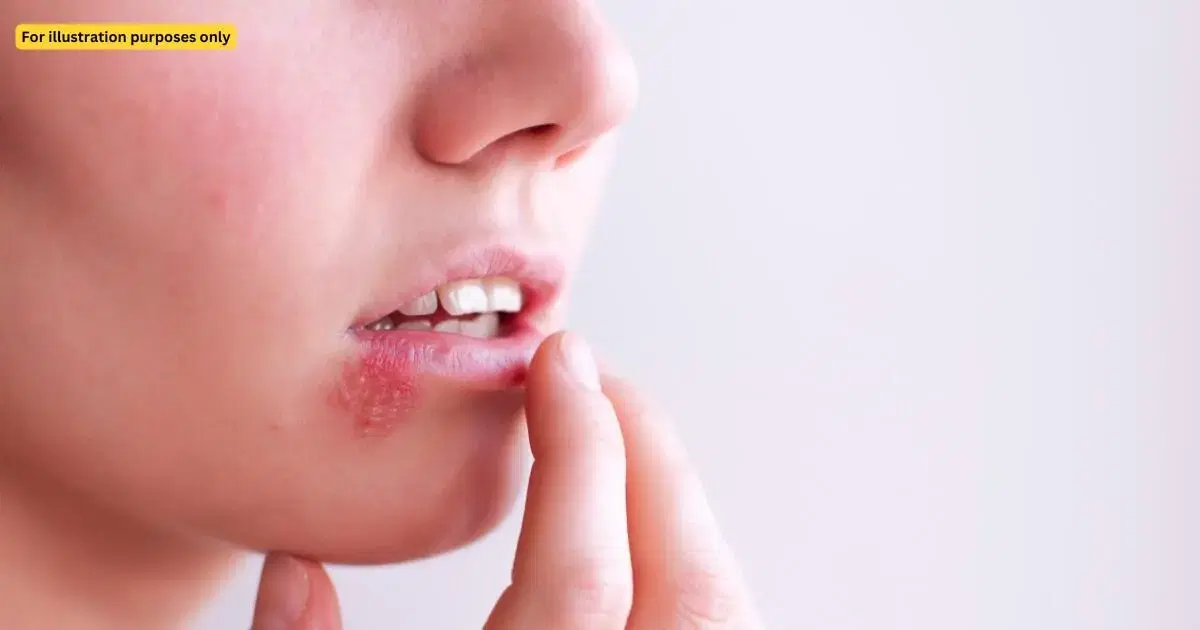You’ve probably heard of herpes before, but not many people really know how it works or how common it actually is.
The truth is, it’s a lot more normal than people think. And way more people have it than you’d expect.
Let’s break it down simply.
2 Types, 2 Areas: HSV-1 and HSV-2

There are two main types of herpes simplex virus (HSV):
- HSV-1 is the one usually responsible for cold sores around your mouth.
- HSV-2 typically causes genital herpes.
That said, HSV-1 isn’t limited to the mouth. It can also show up in the genital area, especially if passed on through oral sex.
Most people get HSV-1 early without realising it
HSV-1 is very common. Most people catch it during childhood, usually through kisses, shared utensils, or close contact.
In fact, studies show that about 80% of adults already carry the virus, often without symptoms.
Here’s what it might look like when it appears:
- Tingling or itching near the lips
- Cold sores or blisters around the mouth
- Sometimes a sore throat or fever, especially during the first outbreak
Symptoms usually appear about one to three weeks after exposure. They can last for up to three weeks.
How it spreads (No, not through toilet seats)

You can get oral herpes by:
- Kissing someone with a cold sore
- Sharing cups, straws, or lip balm
- Touching a sore and then touching your mouth
The virus can enter through tiny cuts or broken skin.
Once it’s in your body, it stays. It may reactivate later when your immune system is weak, you’re stressed, or even after sun exposure.

What about genital herpes?

Genital herpes is usually caused by HSV-2 and is considered a sexually transmitted infection (STI).
It spreads through skin-to-skin contact during sexual activity. It can also be passed through oral sex if the other person has HSV-1.
Anyone can get it. However, studies show that women are more likely to be infected than men.
It can also be passed from mother to baby during childbirth. That’s why it’s important to monitor during pregnancy.
Symptoms aren’t always obvious

A lot of people with genital herpes don’t show any symptoms. But if they do, it might look like this:
- Itching or pain around the genital area
- Small blisters or sores that break open and form scabs
- Painful urination
- Flu-like symptoms such as fever, swollen glands, and body aches
Some people only experience symptoms once. Others might have a few outbreaks a year.
You can’t get it from casual contact
Just to clear up a common myth: you can’t catch herpes from toilet seats, towels, or hugging someone.
The virus doesn’t survive long outside the body. It spreads mainly through direct skin contact, especially during intimate moments.
What happens if you get it?
There’s no cure for herpes, but it’s manageable.
Doctors can prescribe antiviral medication to:
- Help symptoms go away faster
- Reduce how often you get outbreaks
- Lower the risk of spreading it to someone else
If you only get occasional cold sores, over-the-counter creams can help too.
Sources: Medical News Today, WHO, CDC, Very Well Health and Hello Doktor



